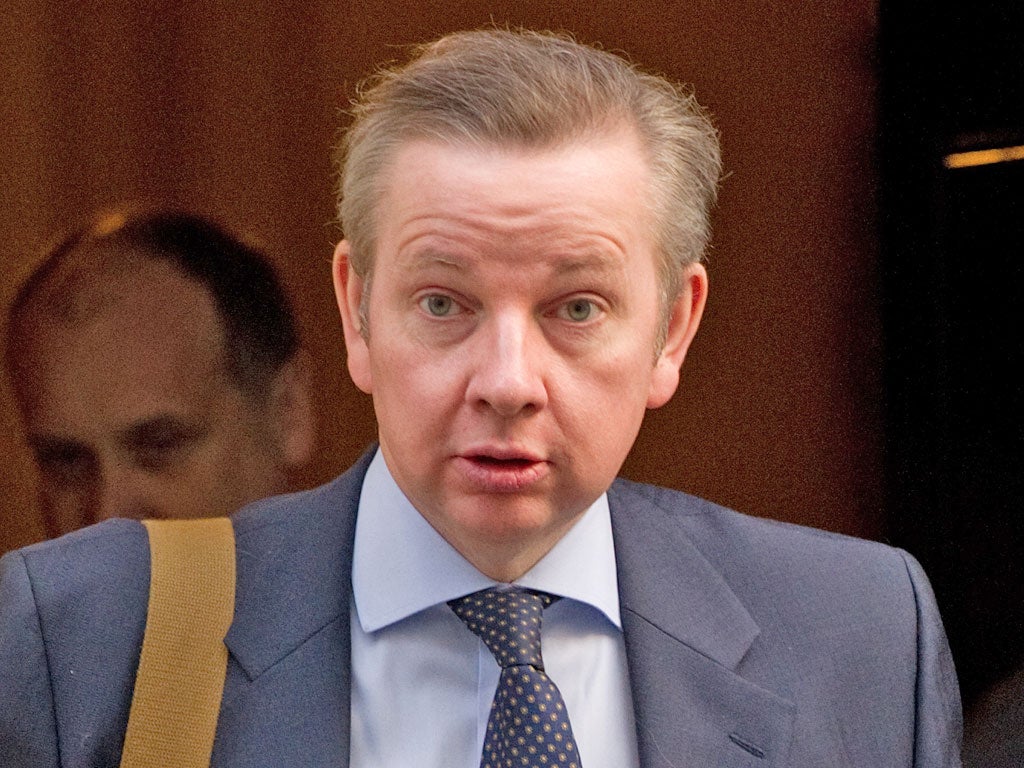London 2012: Legacy uncertain as school playing fields sold off

The legacy of the London 2012 Games has been thrown into doubt after figures reveal that Education Secretary Michael Gove has approved the sale of over 20 school playing fields since the coalition government has been in power.
In total, 21 out of 22 requests have been given the go ahead by the Department for Education in the last two years, with one more still under consideration.
The sell-off comes despite a pledge by the coalition to protect school playing fields.
The new figures, obtained through a Freedom of Information request, are likely to fuel concerns about school sport.
It comes the day after Culture Secretary Jeremy Hunt admitted that school sports provision is still patchy.
Lord Moynihan, the head of the British Olympic Association (BOA), has called for a major increase in Government funding to build on the success of Team GB at the London Games.
Among the pitches approved for disposal is a 1.6 acre playing field at the Winchcombe School, a state primary in Newbury, Berkshire, which has been put up for sale with outline planning permission for housing, the Guardian reported.
And a new school has been built on the site of playing fields at Woodhouse School in Staffordshire.
Some of the fields due to be sold off will still be used for sporting purposes, including Kingsbury High School in north London, which has plans to lease its pitches for five-a-side use.
Others have been disposed of following school closures, the newspaper reported.
The move comes despite a promise by the Conservatives and the Liberal Democrats in the coalition agreement which says they will "support the creation of an annual Olympic-style schools sport event to encourage competitive sport in schools, and we will seek to protect school playing fields."
The DfE insisted that the sell-off of school playing fields will only be agreed if schools' sports needs can continue to be met.
It is understood that the previous Labour government approved the sell off of just over 200 playing fields over 13 years.
And an estimated 10,000 were disposed of between 1979 and 1997.
BOA chairman Lord Moynihan yesterday accused the current and previous governments of "treading water" in terms of increasing participation.
The peer, a former sports minister under Margaret Thatcher, claimed school sports policy is "bureaucratic" and needs more money to fund a major expansion.
Lord Moynihan said: "There is a need for radical reform and I am calling for more money. There needs to be a total commitment to ensuring a sports participation legacy that has to focus on schools and clubs.
"For seven years successive governments have been treading water.
"We have tens of thousands of kids watching great moments which will live with them for ever. The Government should step up to the mark."
He suggested children should be given the chance to try minority Olympic sports such as handball, and primary schools given help to provide more sporting opportunities.
Sport England's focus is on improving participation in the 14-24 age group.
Earlier, Mr Hunt had told BBC Breakfast: "I think at the moment school sport provision is patchy in some places, and we need to do what we can to make sure that the very best examples are spread throughout the whole country, and this is absolutely going to be a focus over the next few months and one of the things that we really want to take away from these Games."
The Culture Secretary insisted that funding of sport has been "one of the great successes" over the past two decades.
A DfE spokeswoman said: "We will only agree to the sale of school playing fields if the sports and curriculum needs of schools and their neighbouring schools can continue to be met.
"Sale proceeds must be used to improve sports or education facilities and any new sports facilities must be sustainable for at least 10 years."
The DfE later said that of the 21 playing fields approved for sale, 14 were at schools that had closed, and a further four were deemed surplus after existing schools amalgamated.
Of the other three, one was extra grassland at a school site, one was leased to a company for it to redevelop and improve a playing field and the third was due to be leased to an athletics club, although this did not go ahead.
Join our commenting forum
Join thought-provoking conversations, follow other Independent readers and see their replies
Comments
Bookmark popover
Removed from bookmarks